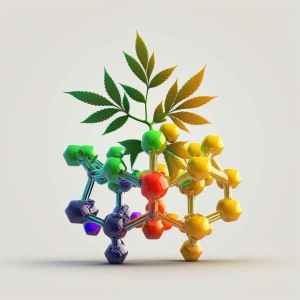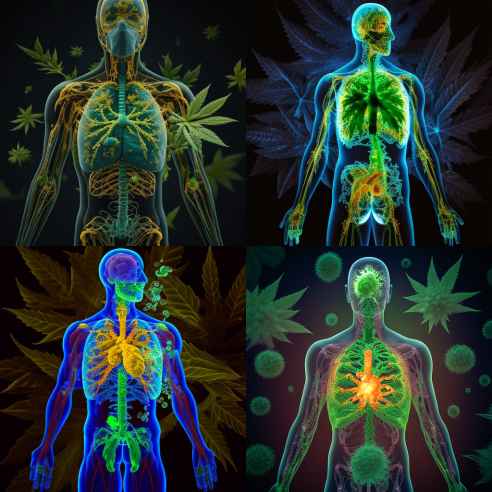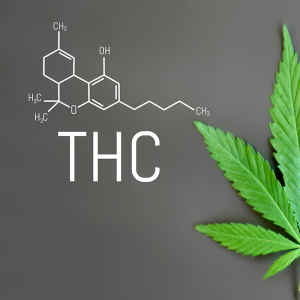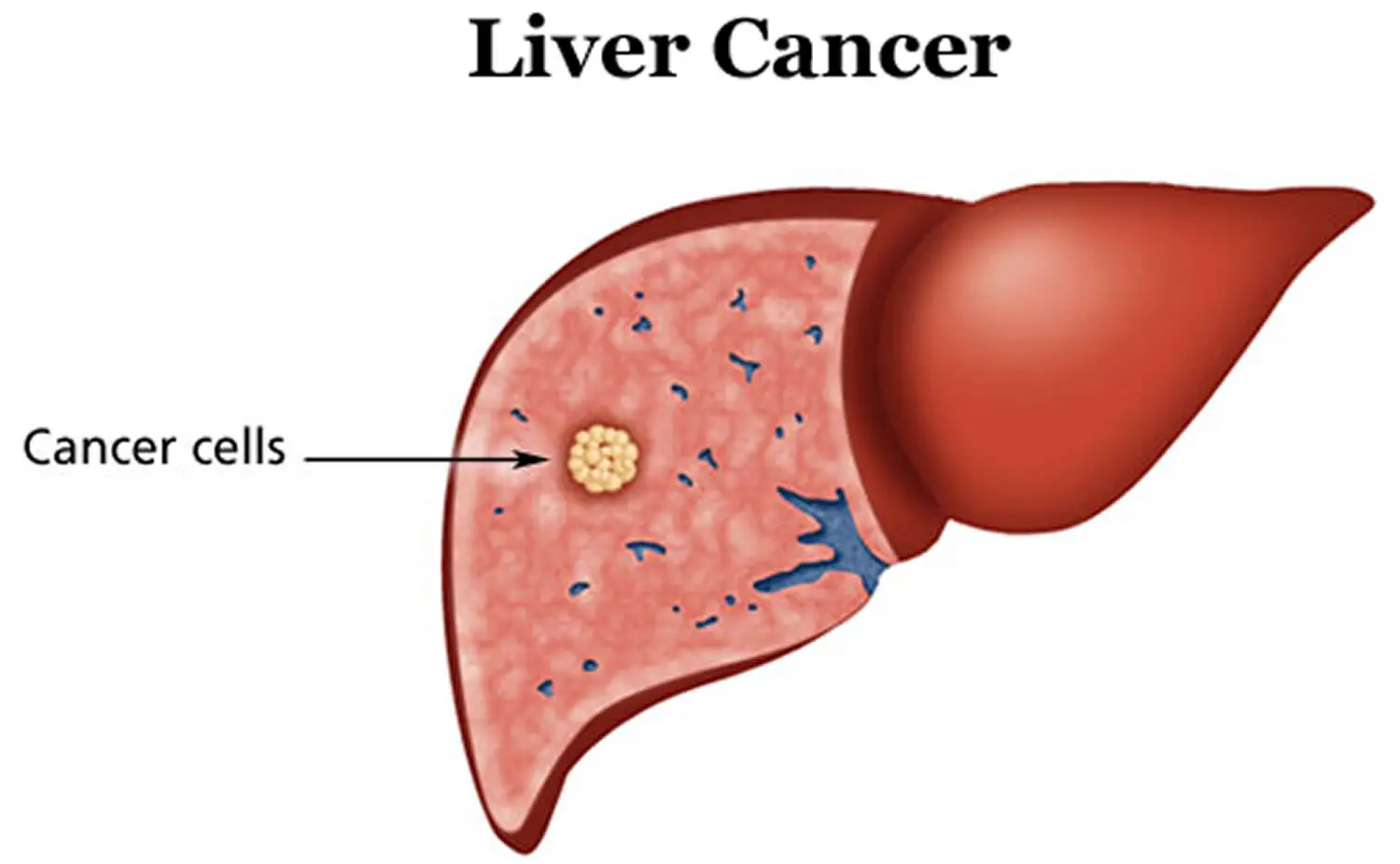
THC, also known as tetrahydrocannabinol, is a marijuana compound that is psychoactive and uplifting – giving you the feeling of being high that the plant is famous for. The chemical composition of THC, C2₁H3₀O2, is very similar to CBD, which actually fights, or counteracts, the effects of THC.
THC mimics the natural chemical structure of anandamide (the body’s own cannabinoid produced in the brain) and it alters communication functions between neurons and cells using the endocannabinoid system.
Apart from getting you high, THC has many medical applications. In fact, we think that the reason many people smoke marijuana is inadvertently because THC has medical effects!
Cannabis Oil contains THC along with every other cannabinoid, including CBD. Many of these cannabinoids have been studied for their profound medicinal value, and more cannabinoids are only now entering studies as initial results prove they too have value. A Full Extract Oil, called dagga oil in South Africa, or Hemp Oil, such as Phoenix Tears, contains a combination of cannabinoids and terpenes found in the marijuana plant. This makes it possible to take advantage of the entourage effect of cannabinoids acting in concert with terpenes.
Here is a list of medicinal uses and scientifically studied properties of THC.
Pain relief is one of THC’s most important medical benefits.
Studies show that cannabis compounds activate central nervous system pathways and block the transmission of pain signals to the brain. Even an FDA-approved trial in 2013 confirmed the effectiveness of THC in relieving pain. People experiencing neuropathic pain received low doses of THC (1.29%) in the form of vaporized cannabis. The results were that “…a low dose of THC provided statistically significant 30% reductions in pain intensity when compared to placebo.”
Clinical studies remain limited due to the regulated condition of cannabis but it is clear that there is a positive correlation between THC and pain reduction.
In the 1980’s, scientists developed a synthetic THC-based drug for Nausea and vomiting called Marinol. Even back then doctors realised the value of THC as a therapeutic agent.
THC-based treatments for nausea and vomiting, such as Marinol, or cannabis oil, can be a much safer option than anti-nausea drugs like Zofran which can cause side effects such as diarrhoea , headache, drowsiness, blurred vision, muscle spasms, rash, fever, and constipation.
In 2014, scientists studied people with traumatic brain injuries. Patients that had THC in their systems were 80% less likely to die from their injuries.
This study showed that even miniscule quantities of THC in the blood protects the brain from long-term cognitive damage after injury from hypoxia (lack of oxygen), seizures, or toxic drugs. While conducting experiments on marijuana biology, Professor Sarn and his fellow researchers discovered that a low-dose of THC had a profound effect on cell signals, preventing cell death, and promoting growth factors. This finding led to a series of experiments designed to test THC’s neuroprotective capacity in response to a variety of brain injuries.
Trying to fall asleep at night, or suffering from sleeplessness? THC shortens the time is takes to fall asleep according to this trial, alongside much anecdotal evidence.
There is also evidence that THC improves the ability to breath at night for those suffering from sleep apnea.
The world has become a place of war and shell-shock, with more and more people reporting suffering from the symptoms of PTSD. Cannabis Oil containing THC can help. Multiple studies have now confirmed THC’s ability to aid in relieving PTSD’s symptoms. Patients report significant improvement in global symptom severity, sleep quality, frequency of nightmares, and PTSD hyperarousal symptoms.
This may not come as a surprise to people who use marijuana, but THC in cannabis and cannabis oil stimulates the appetite (commonly known as getting the munchies).
Among people needing to increase their appetites – just in general or in conditions such has hepatitis or HIV, cannabis oil can make a significant impact in helping people to eat properly and thus make an invaluable difference to the quality of people’s lives.
Inflammation is seriously under-rated. Having inflammation is linked to so many conditions it’s hard to keep count. We know that inflammation is linked to depression, arthritis, heart disease, diabetes, cancer, bowel disease and more.
THC reduces inflammation and this one fact alone makes THC such an important weapon in the fight against disease.
Cannabis Oil South Africa sells THC oil – Phoenix Tears Cannabis Oil in dropper format, pure Rick Simpson Oil, or in Cannabis Oil Suppository format. Cannabis oil is also called Dagga Oil, feco or THC Oil locally in South Africa. Phoenix Tears is commonly misspelt Fenix Tears.
Based in Parktown North, delivery is nation-wide including to Johannesburg, Cape Town and Durban. Click here for our shop.


























Feco oil (Fully Extract Cannabis Oil) has been used by researchers to reduce epileptic seizure frequency in kids by 86 percent, as published in a new

Tetrahydrocannabinol (THC) is a chemical compound found in cannabis plants. It is the primary psychoactive ingredient, meaning it is responsible for producing the “high” associated with cannabis.

THC Oil South Africa – finding the best cannabis oil that suits your needs. At Cannabis Oil South Africa we produce a consistent, quality cannabis

Rick Simpson Oil (RSO) is an oil-based cannabis therapy, developed by Rick Simpson in 2003. RSO is made from a variety of cannabis plants and